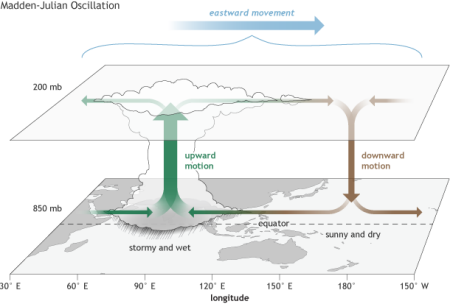Naoko Sakaeda, an assistant professor in the College of Atmospheric and Geographic Sciences at the University of Oklahoma, has received a 2021 National Science Foundation CAREER award to improve scientists’ understanding of the global atmosphere. Sakaeda studies tropical meteorology, especially the unique atmospheric waves at tropical latitudes that influence global weather and climate.
“The atmosphere has no boundaries; whatever happens in the tropics matters a lot to the entire global circulation,” Sakaeda said. “Improving the long-range forecast of severe weather here is dependent on better understanding of the atmosphere globally.”
“You can imagine it as a pot of water. If you start to boil a section, you expect the entire water to start moving in response,” she adds. “The issue we currently have is that tropical atmosphere is much less understood and is difficult to accurately forecast in weather and climate models.”
Sakaeda explains that an extreme weather event in Oklahoma might be driven by cold or warm fronts that are associated with large temperature changes. However, in the tropics, such fronts do not exist, so how temperature evolves and what drives weather are very different.
“How the clouds interact with the atmospheric environment in the tropics is key but is challenging to observe,” she said. “The amount of incoming sunlight, its seasonal cycle, and the effects of the Earth’s curvature and rotation on air flow are different between the tropics and higher latitudes. These are some of the reasons why the atmosphere in the tropics behaves differently compared to the weather and climate over the continental United States.”
The five-year project, funded by a $652,000 grant from the National Science Foundation, looks at the interactions among the atmosphere in the topics and mid-latitude to comprise the global atmosphere, a paradigm Sakaeda says was shaped by her childhood.



